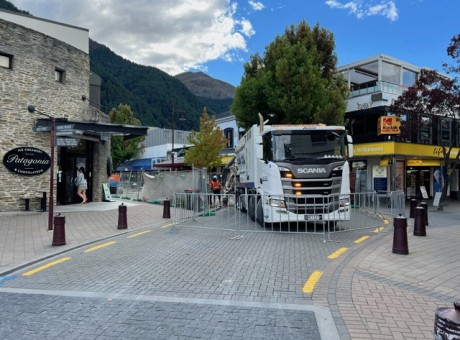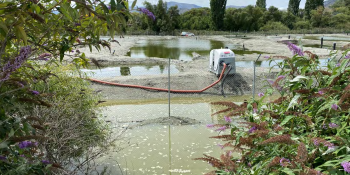Central and regional government clash on future of Otago policy shake up

It represents years of ratepayer investment, staff hours and community engagement, but central government seems clear it would prefer the Otago Regional Council to press pause on a cornerstone policy set to potentially be notified next month.
The regional council has announced an extraordinary meeting to be held in Dunedin on Friday, the second extraordinary meeting in as many weeks as councillors grapple with what to do with their epic Land and Water Regional Plan, now in its final stages of development.
ORC chair Gretchen Robertson and deputy chair Lloyd McCall led a delegation that included council staff and iwi representatives to meet with environment minister Penny Simmonds and forestry and agriculture minister Todd McClay in Wellington on Thursday.
Crux understands the message from ministers was clear: now is not the time to push through new rules at a regional level related to land and water.
The crux of the issue, central government is developing a new national policy statement on fresh water, and there is concern the ORC's policy shake up is strongly rooted in the existing policy statement.
As a result, there appears to be a rift among the council's elected members as to the proposed plan's future.
Dunstan councillor Gary Kelliher is one of the five councillors to have requested Friday's extraordinary meeting to discuss the conversation with the ministers last week in Wellington.
"The government have been very clear that they want our draft land and water plan paused," he tells Crux today.
"We have called the meeting so the detail can be discussed publicly and a vote will be held to direct staff to explore with central government solutions to some hurdles that might arise if the plan was paused."
The ORC is due to decide on October 23 whether to go ahead and publicly notify its proposed land and water plan for the region or consider pausing its progress.
It is Mr Kelliher's view there is a voting block of seven councillors keen to see the plan notified by the end of October.
"They prefer their own ideological and non-science backed positions over the direction the government has made," he says.
Fellow Dunstan councillor Michael Laws is another signatory on the request for the extraordinary meeting, alongside councillors Andrew Noone, Kate Wilson and Kevin Malcolm.
Crux has approached Councillor Laws for comment.
In a letter to Minister Simmonds on September 5, Councillor Robertson defends the council's earlier decision to continue development of the plan, despite its turbulent context and central government's flagged reservations.
She notes more recent adjustments to the draft plan that better align it with central government's direction, the significant investment by the Otago community in the draft plan to date, and community concerns about water quality across the region, among reasons for continuing with the work.
"We still have a large part of our community concerned about water quality degradation that is asking us to act now," she says in the letter.
"The bulk of our plan was drafted over 15 years ago and it hasn’t kept up with the rest of New Zealand."
She also says the submission and hearing stages for the plan in the coming two years will provide "ample opportunities" for the council to respond to any changes in national direction.
Federated Farmers has been lobbying for more transparency from the council on some of the more recent changes made to the draft plan, and the subsequent compliance costs for its members in light of any tweaks to proposed rules already consulted on to date.
The organisation's view is there is "absolutely no need for the council to stubbornly push ahead" and notify the plan in October.
Two papers have been written by ORC chief executive Richard Saunders for noting and discussion at Friday's meeting, and they are embargoed until Thursday evening.
Read more:
Farmers demand transparency from ORC on cost of new water rules
Dunstan councillors disagree on future of controversial land and water plan
Mammoth ORC policy shake up will impact urbanites as well as farmers


























